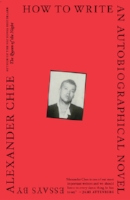5 stars. This year, I decided to create and implement two reading challenges. The first: 1 re-read per month. I'm really interested in revisiting old favorites - many of them books I read as a child or a young person - and this is meant to get me out from under the pressure to consume everything new and shiny. My first re-read was The Westing Game - and it was hugely delightful.
The second challenge: 1 you haven't read that yet?! per month. There are some books out there (classics, bestselllers, Want to Read lingerers) that I just haven't forced myself to read, for whatever reason. This challenge is meant to make it happen. I had so much fun developing my lists/plans for both of these, but I'm keeping them under wraps so I can tinker/change my mind.
My first you haven't read that yet?! is Truman Capote's In Cold Blood. I know - HOW. How have I not read this. But it's true. I finally finished it yesterday and wow - there's so much to unpack. Based on advice from my husband, I went in completely blind and resisted the urge to Google, even when my fingers itched to. I let myself absorb the story as it unfolded.
The story, as it turns out, is the story of a murder - the horrific, tragic murder of a family of four in their farm house in Holcomb, Kansas. In Cold Blood, written as the first "nonfiction novel," explores the crime from every angle. Showcasing an incredible eye for detail, Capote sets the stage with care and paints detailed pictures of each victim and each perpetrator. He examines closely the events leading up to and after the murder, placing the rippling consequences in sociological and psychological contexts. We get to know these people - the victims, the survivors, the witnesses, the investigators. By the end, we feel deeply affected by the murders and intimately familiar with the murderers.
What can I possibly say? Capote literally invented a genre here. He birthed a type of writing. It's obviously an incredible technical accomplishment, both in terms of style and approach. The level of journalistic work required must have been insane. Yes, he distorted the truth in places, created scenes where perhaps he shouldn't have, but we know that going in by now. The hype is REAL. It's a must-read.
So yes, it's a gamechanger from a methodological perspective. But it's also a profoundly emotional read. Capote was obviously the OG murderino, but I don't think even he anticipated the many complexities or the distressing twists and turns this case would take.
One thing emerged very clearly for me, a quarter of the way through the book: Capote was obsessed with - infatuated with, maybe - Perry Smith. He never excuses Smith's behavior, nor does he minimize the tragedy of the Clutters' deaths. He confronts the horror head-on, in fact, brutally walking us through Smith's cold, twisted thought process upon killing four innocent people for $40. But he's fascinated with Smith and pays distinct attention to his upbringing, his past, his family, the circumstances that led to his predicament.
It's an almost loving portrayal, and his death feels almost just as tragic as the original murders. I finished this book after watching the Ted Bundy documentary on Netflix (Ted Bundy is having a moment), and I couldn't help but juxtapose the two killers and the forms of justice they faced.
Killing Ted Bundy was an ultimate and satisfying consequence, because it completely robbed a manipulative psychopath of his control. That man was never going to stop. He was never going to stop hunting. He was driven almost beyond self-preservation to possess things - situations, authority figures, courtrooms, juries, women. I find myself supportive of the death penalty here as justice for his victims and as prevention of his future crimes.
Killing Perry Smith and his partner feels far less satisfying. It's just not the same. There is a spectrum here and Smith - to me, based on this book - does not land near Bundy. Like Capote, I will not excuse his actions or distract from the complete suffering faced by the Clutter family. But like Capote, I see layers here. I see reasons. I see explanations. I see circumstances beyond Smith’s ability to control.
It's a moral quandary that I won't even attempt to navigate beyond that. I am tired and my brain is squishy from considering all this. But it's beautiful that this book inspires these types of questions. In Cold Blood is truly extraordinary, and I can see why Capote struggled with it. I'm so glad I read it and I'm sorry it took me so long.
In Cold Blood on: Amazon | Goodreads










